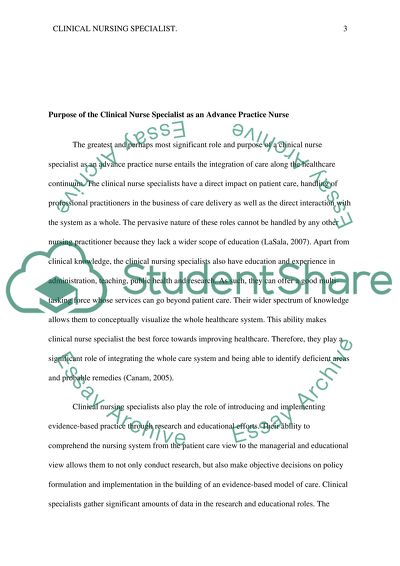Cite this document
(“The Role of the Clinical Nurse Specialist as an Advance Practice Nurse Research Paper”, n.d.)
Retrieved from https://studentshare.org/nursing/1460536-the-role-of-the-clinical-nurse-specialist-as-an
Retrieved from https://studentshare.org/nursing/1460536-the-role-of-the-clinical-nurse-specialist-as-an
(The Role of the Clinical Nurse Specialist As an Advance Practice Nurse Research Paper)
https://studentshare.org/nursing/1460536-the-role-of-the-clinical-nurse-specialist-as-an.
https://studentshare.org/nursing/1460536-the-role-of-the-clinical-nurse-specialist-as-an.
“The Role of the Clinical Nurse Specialist As an Advance Practice Nurse Research Paper”, n.d. https://studentshare.org/nursing/1460536-the-role-of-the-clinical-nurse-specialist-as-an.


